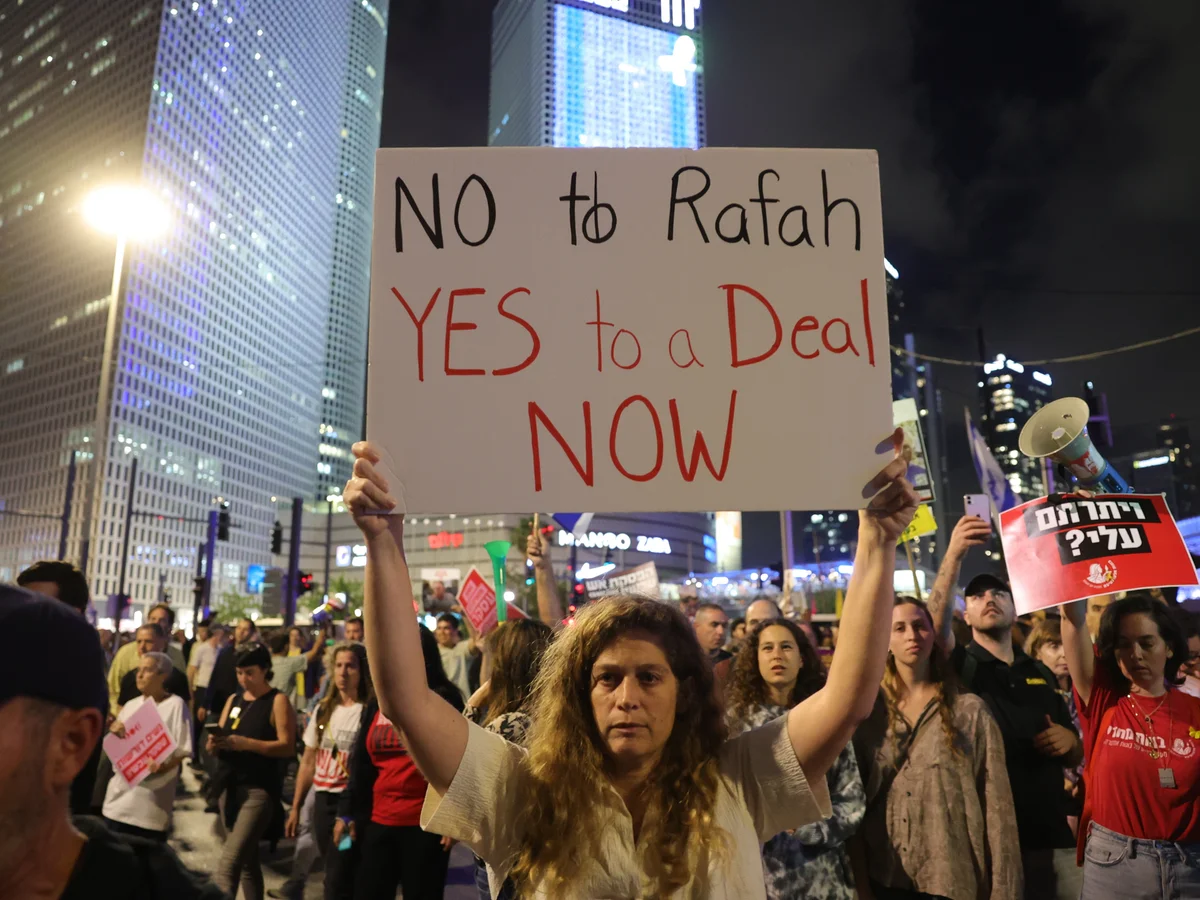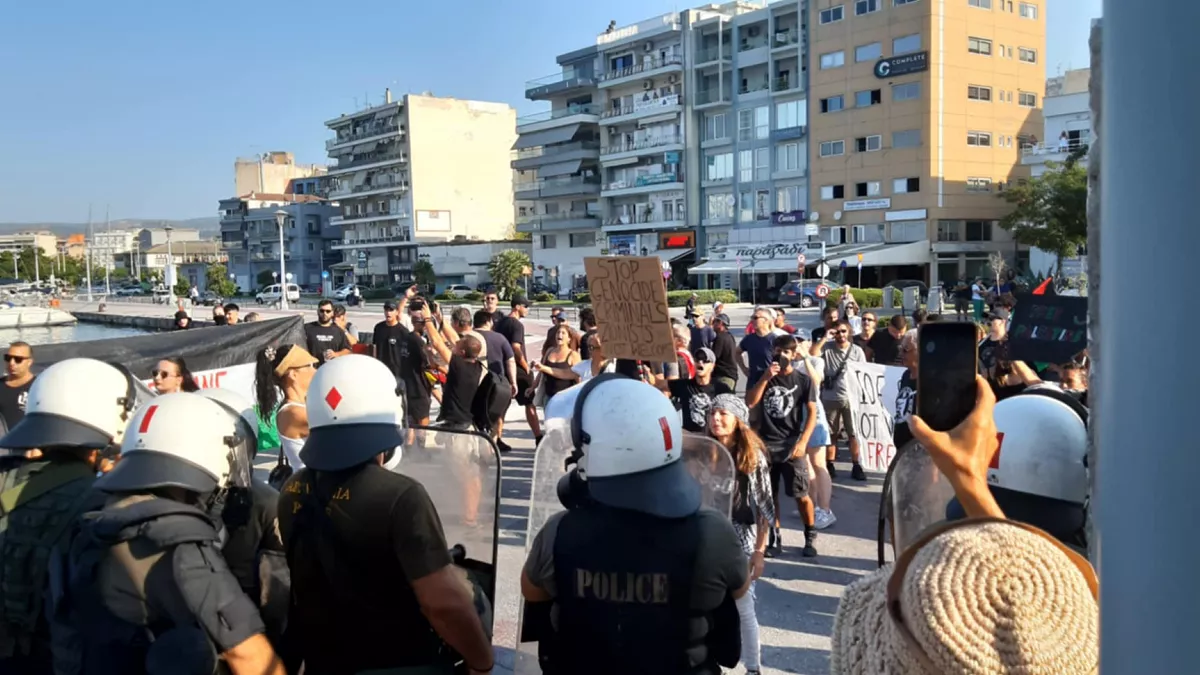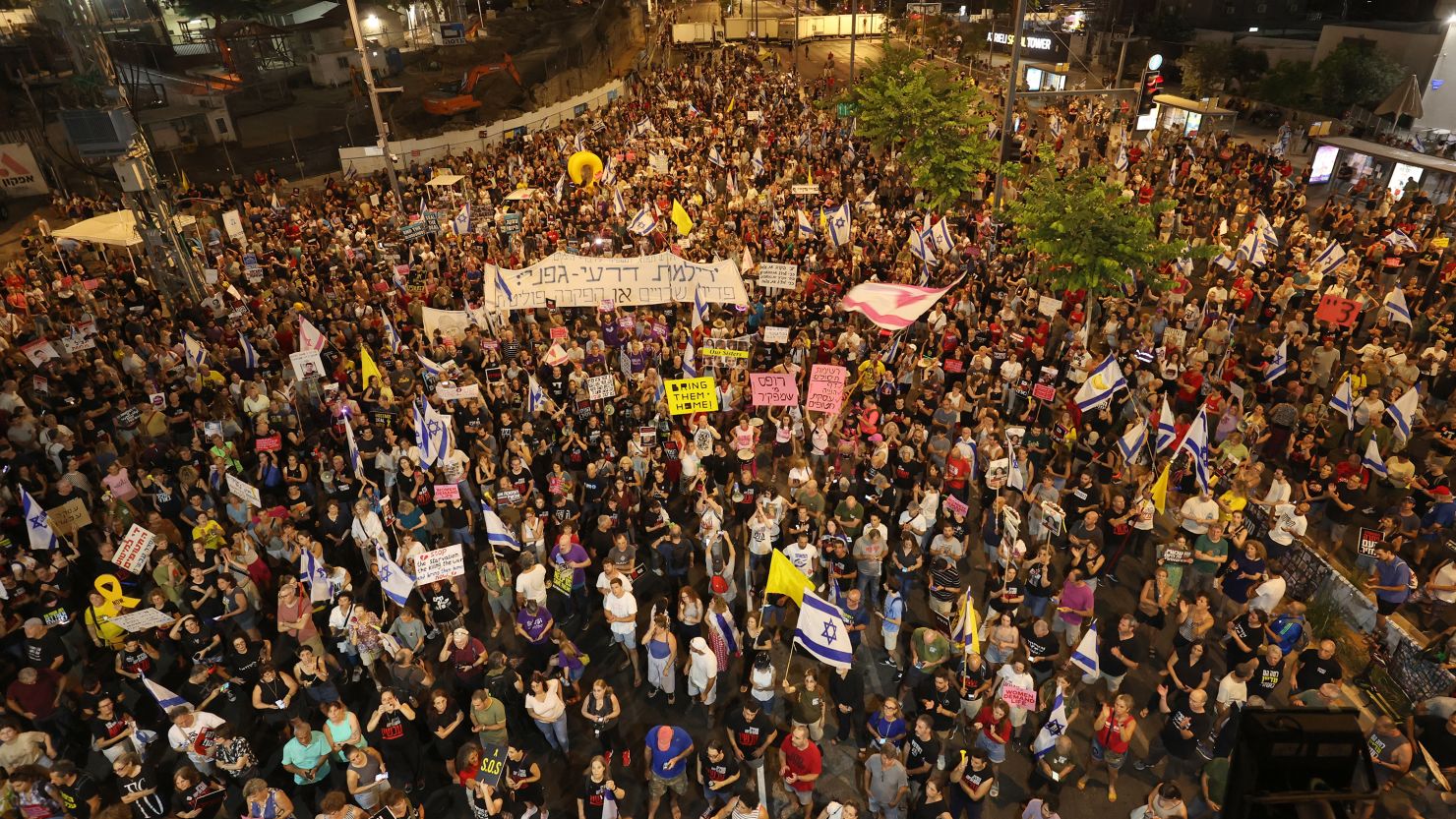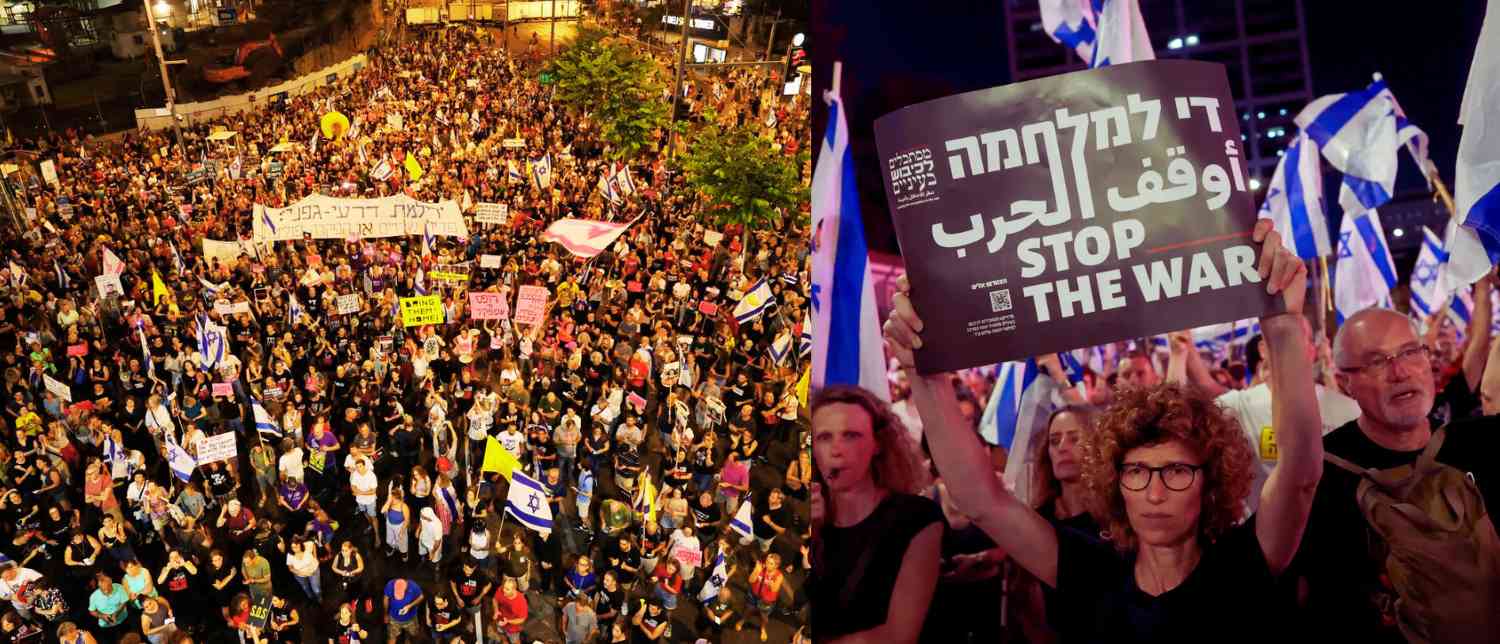On Sunday, August 17, 2025, hundreds of thousands of Israelis took to the streets in one of the largest and most intense protests since the Gaza conflict began nearly two years ago. The protests were driven by families of hostages held in Gaza and citizens deeply concerned about the ongoing war and the escalating military operations planned by the Israeli government in Gaza City.

The main call of the protesters was for a concrete deal to free the approximately 50 hostages still held by militants in Gaza—of whom about 20 are believed to be alive—and a ceasefire to end the brutal conflict. Demonstrators chanted phrases like "We don’t win a war over the bodies of hostages," reflecting a growing frustration with the government's strategy, which emphasizes military action despite fears it might endanger the lives of captives. Many protesters, including former hostages and family members, highlighted that military pressure alone will not secure the release of hostages but rather risks their lives.
The demonstrations spanned across Israel, including major cities such as Tel Aviv, Jerusalem, Haifa, and Beersheba. Protesters blocked roads and highways, disrupted traffic, and some businesses and cultural venues chose to close in solidarity. Israeli police arrested dozens during the protest for disturbances, but the size and scope of the movement revealed the extent of national concern.

The protests come at a critical moment as the Israeli government, led by Prime Minister Benjamin Netanyahu, has decided to escalate military operations with plans to take control of Gaza City—a move that could displace nearly one million Palestinians and worsen the humanitarian crisis in the region. The military’s top leadership has warned that such an occupation could be "akin to stepping into a trap" and might threaten the hostages' safety.
Families of hostages formed the "Hostages and Missing Families Forum," which was instrumental in organizing the national strike and protest day. They called on the government to halt military operations that could jeopardize hostage lives and instead pursue negotiations. The forum stated, “We will shut down the country today with one clear message: Bring back 50, end war.” They warned that failure to act swiftly could mean losing the remaining hostages forever.
The situation reveals a deep division within Israel. While many support military actions against militants, a significant portion of the population—including some former soldiers and public figures—have voiced opposition to the war’s current trajectory, seeing negotiation and ceasefire as necessary steps to save lives and bring peace closer.

In summary, the mass protests highlight the conflict’s complexity, where urgent humanitarian concerns intersect with national security challenges. The protesters’ message is clear: the priority must be to secure the release of hostages through negotiation and to seek an end to the violence in Gaza, reflecting a desire among many Israelis for peace and a return to normalcy for families torn apart by war. The coming days will likely be critical in determining whether the government listens to these voices or pursues further military action amid rising tensions.
With inputs from agencies
Image Source: Multiple agencies
© Copyright 2025. All Rights Reserved. Powered by Vygr Media.

























